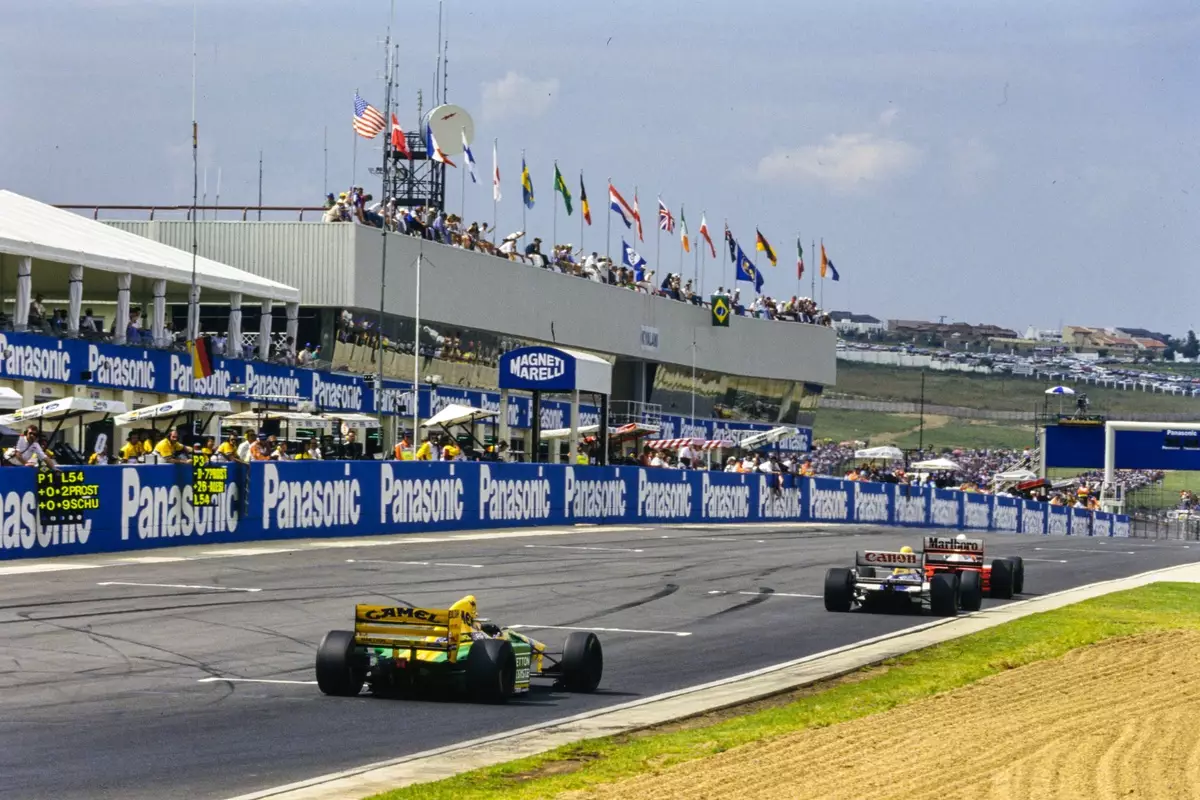The motorsport world is buzzing with excitement following the South African government’s latest decision to extend the deadline for submitting bids to host a Formula 1 grand prix. This move signifies the country’s determination to revitalize its motorsports scene after a 32-year absence from the Formula 1 calendar, dating back to the last race held in Kyalami in 1993. The revival of grand prix racing is not merely a quest for speed; it represents an economic, cultural, and social opportunity that South Africa is keen to seize.
The Bid Process: A Structured Approach
As part of their structured approach to secure this prestigious event, South Africa’s Ministry of Sport, Arts, and Culture has set up a Bid Steering Committee. This committee is responsible for managing the bidding process and ensuring that interested parties can submit their proposals effectively. The government originally published its bid request on January 17, prompting a wave of interest from potential promoters and organizers. However, with the initial deadline of January 31 proving too brief, the extension to March 18 reflects the government’s commitment to fostering a thorough and competitive selection process.
The announcement confirms that the government aims to welcome well-structured proposals that align with the requirements set out in their Request for Expression of Interest (RFEOI). This transparency in the bidding process is critical not only for attracting the right partners but also for ensuring that the bid is competitive on a global scale. The extended deadline is more than just a logistical adjustment; it indicates an understanding of the complexities involved in orchestrating such a high-profile event.
Landmarks and Venue Considerations
Two primary contenders have emerged in the race to host the Formula 1 grand prix. First, the iconic Kyalami circuit, which has a rich history in motorsport, is undergoing renovations to meet the FIA Grade 1 standards necessary to qualify for hosting. This famous track holds nostalgic value for many racing fans and has the potential to deliver a thrilling experience for both local and international spectators.
On the other hand, the Cape Town Grand Prix SA has tabled an innovative bid for a street circuit surrounding the picturesque waterfront area of Cape Town, including the DHL Stadium. This location not only promises a beautiful backdrop but also capitalizes on urban excitement, similar to recent successful races held in other urban centers worldwide. Additionally, plans for a purpose-built circuit on the outskirts of the city could provide an alternative option that enhances the overall racing experience.
The implications of hosting a Formula 1 race extend beyond mere fanfare. South Africa’s sports minister, Gayton McKenzie, has made it clear that the return of Formula 1 could serve as a catalyst for economic growth. With the potential to attract millions of fans, the grand prix could boost local tourism immensely. The government envisions an influx of visitors eager to experience the thrill of live racing while exploring the beauty and diversity of South African culture.
Moreover, hosting such a high-caliber event would showcase South Africa on an international stage, reinforcing its image as a premier global sporting destination. The promise of job creation related to the race—from logistics to hospitality—could significantly contribute to local economies, particularly in areas surrounding the chosen circuit.
Looking beyond the immediate bids, the South African government is eyeing a potential return of the F1 race by 2027, with an aggressive timeline that aims to establish a yearly presence in the Formula 1 calendar. However, the ambitious nature of this goal cannot be overlooked; with competing bids emerging from other nations, including Rwanda and several Asian countries like Thailand and South Korea, South Africa must develop a compelling value proposition to stand out.
Fighting for a spot on the F1 calendar requires not only robust logistical planning but also an understanding of the competition. Yet, the South African bid carries the weight of possibility and potential against a backdrop of rich racing heritage. Through strategic partnerships, meticulous planning, and community engagement, the nation can bolster its bid to bring Formula 1 back to its shores.
The extended deadline for host bids is a significant step towards re-establishing South Africa as a vibrant player in the Formula 1 arena. Through careful planning and a focus on sustainable economic impact, the country stands on the brink of a new era in motorsport. If successful, hosting a Formula 1 grand prix in South Africa could transcend the sport itself, igniting a spirit of national pride and international recognition. It’s a moment that could redefine the landscape of motorsport in Africa and beyond.


Leave a Reply